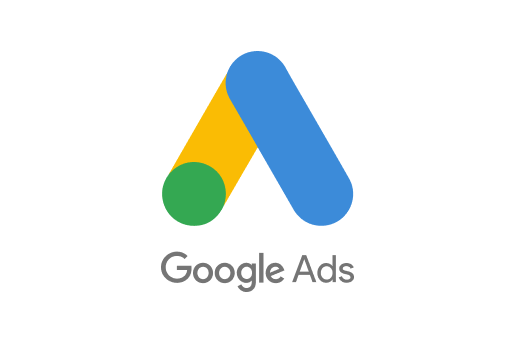The More You Know: Understanding the History of Google Algorithm Updates
Jeremy Robinson • May 8, 2020
Google's ranking system is constantly changing and advancing.

Some people believe SEO is pointless. Google's search algorithms shift too quickly and the target is constantly moving. We beg to differ.
While Google isn't exactly transparent about its search index system, they leak enough information to allow SEOs to fill in the gaps. The best SEOs
must be on their toes ready to respond to the slightest change.
This is why we've compiled a list of the largest Google Algorithm changes. Knowing what Google has done in the past can clue you into what Google might do in the future. Keep scrolling to learn more.
1. Florida: The Very First Google Algorithm Update
November 16, 2003
was a day that went down in the SEO history books. It was like a hurricane tumbling across the Atlantic coming for every spammy website in the Google index.
What do we mean by spammy websites? Websites that abused keywords by stuffing them into their content. Sites that used hidden text and links to trick the algorithms. And brands that created multiple websites under one single brand to increase traffic and create false networks.
Oddly, this happened just in time for the holiday season and many retailers who relied on affiliate marketing were left licking their wounds. But it wasn't just retailers who felt the change, it was the entire internet. Suddenly, everything had changed and SEOs were struggling to figure out what had happened.
2. The Panda Rampaged
From Florida onward, SEOs would be on high alert as Google released smaller updates. There was the Jagger update which targeted backlinks, and then Big Daddy and Vince and Caffeine, all of which were small potatoes compared to what came next.
It was 2011 and things were relatively quiet in the SEO world. Content farms were booming and search quality was dropping. Google decided they needed to release the Panda.
The Panda rampaged and it knocked rankings on "low-quality sites." This meant sites that lacked original content, research, in-depth reports, and thoughtful analysis. Panda was an algorithm breakthrough named after its creator.
It hit content farms the hardest. Content farms were sites that churned out low-quality content to boost their rankings and dominate the search engines. It hit the "article marketing" industry hard.
Later, Google released a list of 23 questions
to help guide webmasters in creating better content on their sites. Supposedly adhering to this list appeased the Panda.
Since 2011, Google has updated the Panda algorithms 28 times. It's the most tinkered-with algorithm in Google's history.
Panda Integration
The last Panda update was in 2015. Less than a year later, Google incorporated Panda into its core Google algorithm. This means that "quality" is now an official ranking signal even though SEOs have been acting as if quality was a ranking signal for some time.
Google has said they want webmasters to focus less on traffic and more on creating content designed to help people. This is a funny tautology as we're now creating content to help people in order to gain more traffic.
3. Penguin and Webspam
There are several theories as to why Google named their webspam algorithm Penguin. Some surmise they named the algorithm after Batman's nemesis The Penguin. It's more likely the name is related to the key engineers who created the algorithm.
Before Penguin, link volume played a much larger role in a webpages SERP than now. Low-quality sites ranked well merely because people were enticed to click through to them.
Google designed Penguin to fill in the gaps Panda left open. While Panda dealt with various aspects of a site's quality, Penguin dealt primarily with a site's incoming links.
Concern quickly grew. If Google is now downgrading your rankings solely on incoming links, what stops someone from spamming your site with low-quality links as a sort of dirty tactic.
Google created a disavow tool that allowed webmasters to send them a list of spammy links to disavow. In other words, these links would not count either positively or negatively when it came to determining a site's ranking.
The disavow tool was supposed to be a last resort. Google still wants webmasters to reach out to other webmasters and ask for spammy or low-quality links to be removed.
Penguin Integration
Like Panda, Penguin is now part of the core algorithm joining 200 or more signals. There will be no more announced Penguin updates as its components will be constantly updated in real-time using machine learning.
No longer will we see entire sites drop in ranking because of Penguin. It now targets individual pages for linkspam.
4. Meet BERT
Since the Penguin integration, we've seen several major updates both confirmed and unconfirmed including the Medic update in 2018 which targeted health and finance-related sites. But nothing comes close to Bert in terms of complexity and impact.
If you experienced a hit to your rankings this winter, blame BERT and not Ernie. BERT stands for Bidirectional Encoder Representations from Transformers. That's a complicated way of saying "deep learning algorithm."
It uses natural language processing to give the core algorithm a better understanding of the context and nuance of words within a body of text. This should help the core algorithm better match with correct queries to improve results for users.
BERT only affects one in ten searches. Why? Because BERT's main purpose in life is to improve the snippets feature and secondarily to improve long-form content ranking.
Google wants searchers to search in a more natural way. This likely has to do with the rise of voice search and home base options like Google Home and Alexa.
How to Deal With BERT
If you already produce well-written, informative, error-free content, you shouldn't have to worry much about BERT. He'll go on reading and informing the core algorithm of what he finds. In fact, he might be a boon to SEOs who have pushed clients to invest in better content.
Hire an Expert Marksman
If you don't have time to practice your aim, what's the best way to win an archery competition? Hire an expert marksman to compete in your place.
The Google algorithm is a constantly shifting target. It's difficult to keep up with the updates. Let us do the research for you. Try our free SEO analysis
and learn how you can improve your website with our services today.








